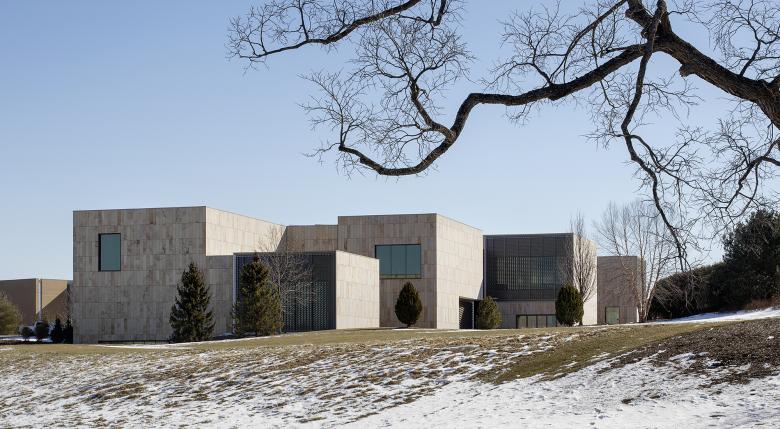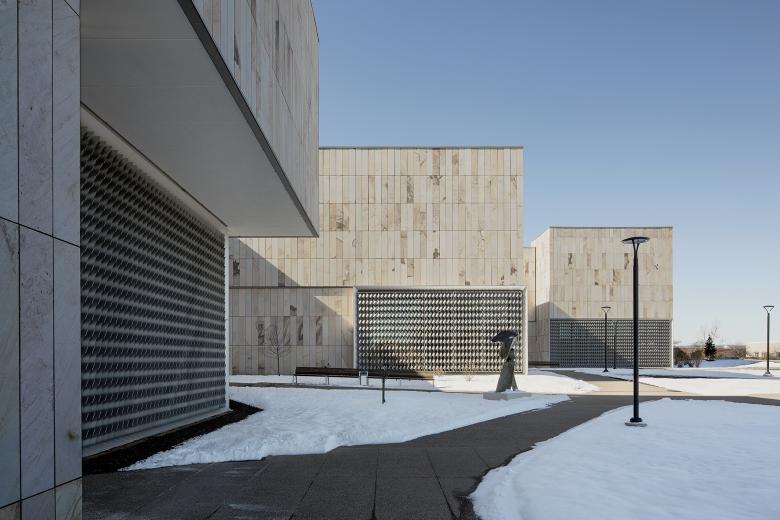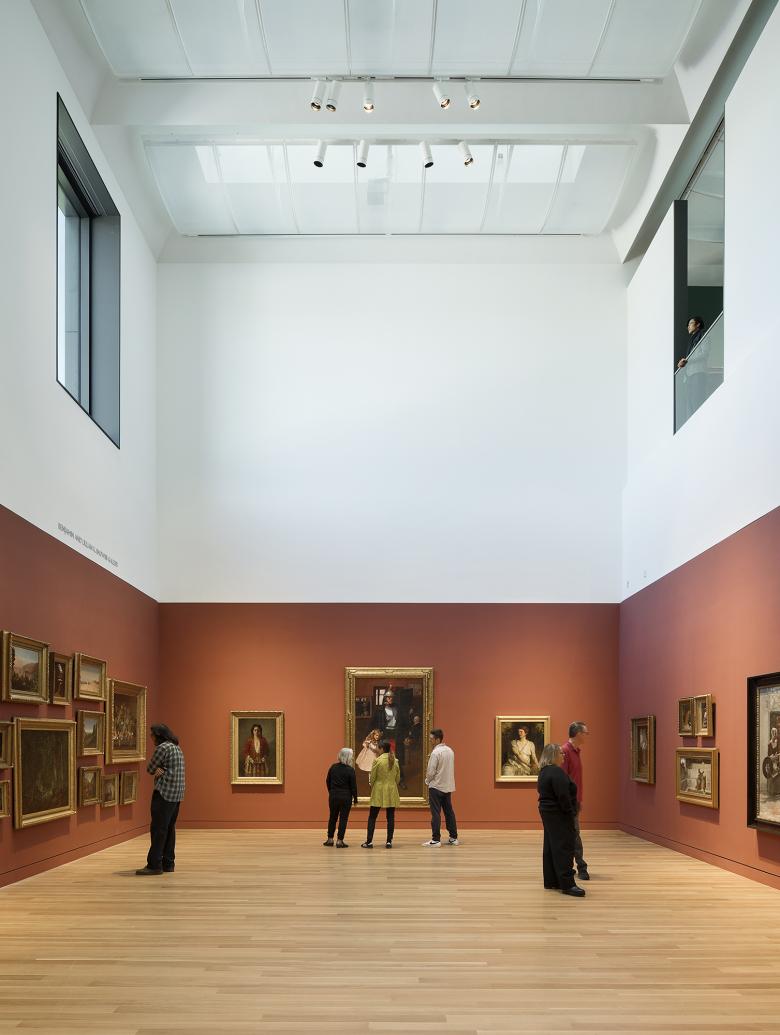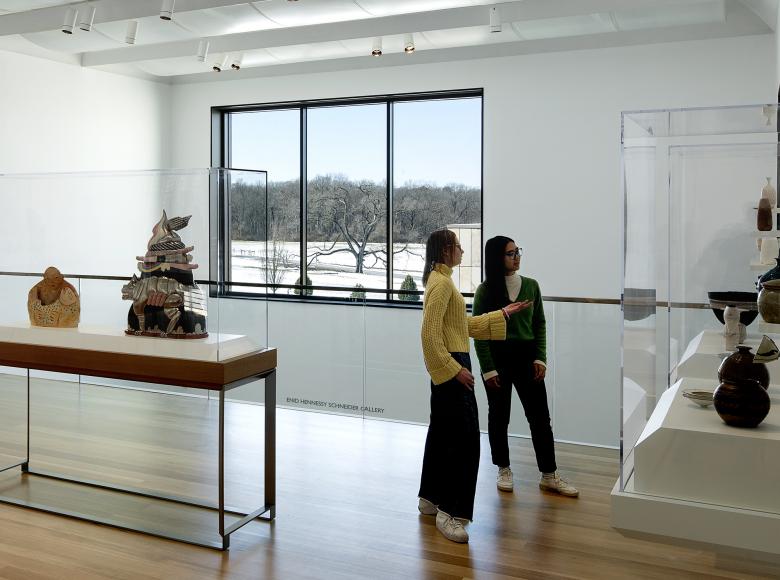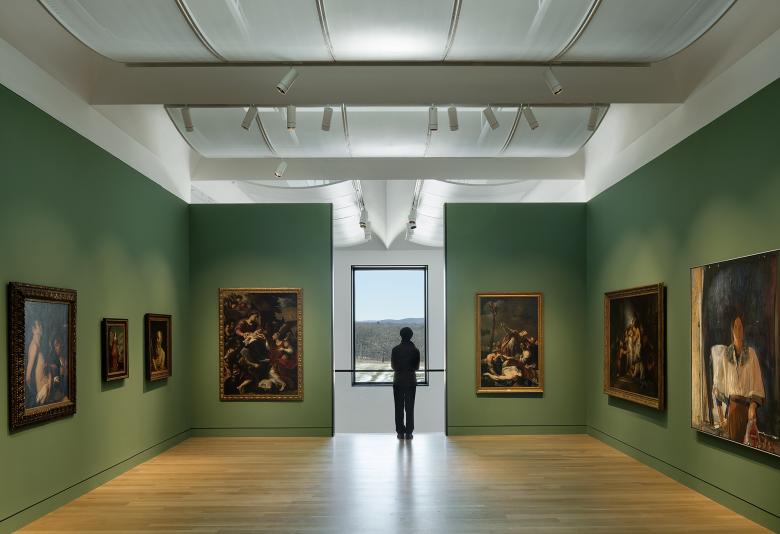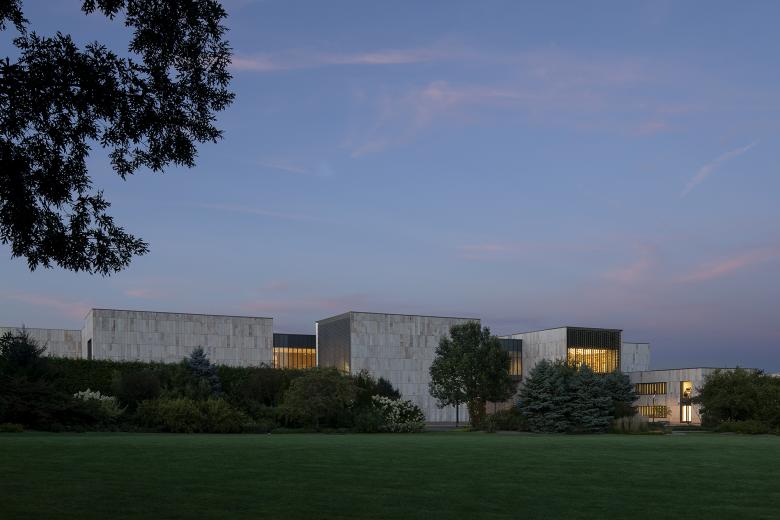Penn State — Palmer Museum of Art
Retour à la liste des projets- Lieu
- State College, PA, États-Unis
- Année
- 2024
- Client
- Pennsylvania State University
- Équipe
- Brad Cloepfil, Chelsea Grassinger, Thea von Geldern, Nathan Hamilton, Rebecca Wood, Emily Kappes, Rachel Massey, Zac Jensen, John Bohlmeyer, Philip Balsiger, Bjorn Nelson, Sarah Rousey, Gianna Prather, Jeremy Son, Liyang Zhang
- Landscape Architecture
- Reed Hilderbrand
- MEP/FP engineering, Lighting and Daylighting
- Arup
- Civil Engineering
- Langan
- Custom aluminum ornamental sunscreen
- Zahner
- Acoustics
- Jaffe Holden
The Palmer Museum of Art at Penn State University finds a new home in Allied Works’ latest museum, opening to the public on June 1, 2024. Integrating art, architecture, and landscape, the design embraces Allied Works’ commitment to architectural experiences that respond to specificity of place and purpose. In its new location adjacent to the Arboretum at Penn State and the H.O. Smith Botanic Gardens, the new 73,000-square-foot Palmer Museum of Art creates an engaging, light-filled context to experience the museum’s collection and signature holdings of American paintings situated in direct dialogue with the mountains and valleys they evoke.
The grasslands, gardens, and forests of the Arboretum provide the inspiration for the museum’s design. A series of interlocking pavilions places the Palmer within the flows of the greater landscape. Each pavilion is clad in sandstone sourced from local quarries, evoking the geology of central Pennsylvania. The pavilions, in turn, define distinct courtyards and create space for terraces and gardens, designed in collaboration with landscape architect Reed Hilderbrand. The Dr. Keiko Miwa Ross Gateway—an overhead bridge joining the Palmer’s two main wings that house public gathering spaces and exhibition galleries in the west, and administrative offices, classrooms, and educational spaces in the east—creates a new gateway into the H. O. Smith Botanic Gardens, and the Pollinator and Bird Garden beyond, connecting people to landscape, and landscape to art.
Natural light amplifies the experience of the Palmer’s collection and program from within the museum. Soft blankets of light fall from overhead diffusers into the galleries. Metal sunscreens form ornamental wall tapestries of light that both protect the art and join the visitor to the surrounding campus and views of the neighboring botanic gardens and the surrounding Nittany Valley mountains.
The building’s interlocking volumes create double-height pavilions in the lobby entrance and galleries. Varying in height and proportion, the galleries are scaled to serve the diversity of genres embodied in the Palmer’s collection, which includes American, European, African, and Post-war modern and contemporary art, and holdings of ceramics and contemporary studio glass. Visitors are invited to meander through the museum, which will have double the space for exhibitions and scholarship, exploring the collection and creating new connections in an experience punctuated by scenic overlooks and enfilade axes capped with distant views.
